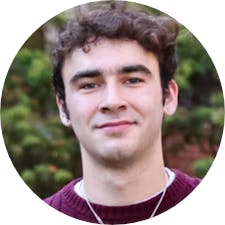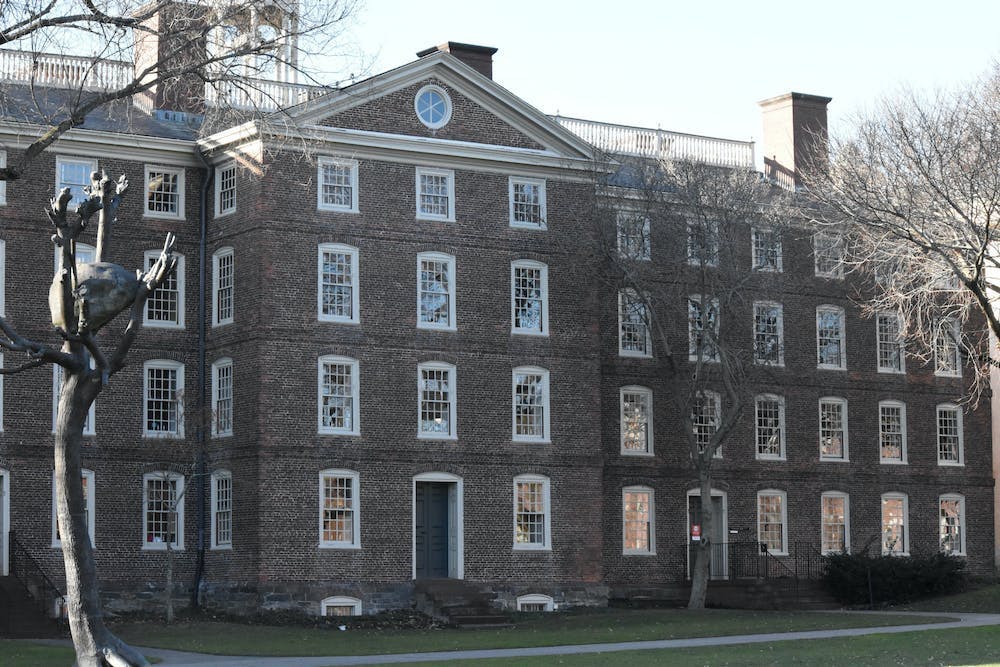President Christina Paxson P’19 P’MD’20 introduced a proposed Title IX pilot program that will seek to improve the University’s current processes at Tuesday’s faculty meeting. Administrators also discussed changes to Brown’s Ph.D. applications in light of the Supreme Court’s decision to limit race-conscious admissions, as well as plans to increase investments in current and potential University Master’s programs.
The new Title IX program would create a “single-hearing officer model” in which a “carefully-vetted” individual looks at relevant facts and policies to make determinations about Title IX cases, Paxson explained. Under the current Title IX program, decisions about cases are made by hearing and appeal panels made up of student, staff and faculty members.
The appeals process will remain unchanged under the pilot program, which also will not apply to cases involving faculty and staff members, according to Paxson. The new program is currently under final review and will be implemented for a two-to-three-year pilot period.
According to Paxson, the new process may alleviate problems currently plaguing Title IX cases, where scheduling conflicts can unnecessarily extend cases and panel structures may result in inconsistencies across rulings. Paxson added that the University also expects new Title IX regulations from the Department of Education, which may lead to additional changes to the process.
Thomas Lewis, dean of the Graduate School, touched on changes coming to graduate school admissions that are being implemented as a result of the Supreme Court’s decision to limit race-conscious admissions.
The University’s Ph.D. applications will now include a 300-word statement that asks “students to speak to the ways in which their backgrounds might bear on their interest in pursuing particular areas, as well as what commitments they may have to advance diversity within their disciplines or areas of research,” Lewis said.
Provost Francis J. Doyle III also discussed the University’s goals to expand its research and Master’s programs at the meeting. Over the last decade, the University’s operational plans have increasingly focused on expanding Brown’s Master’s programs, Doyle said, adding that many University undergraduates pursue Master’s programs at other institutions rather than continuing their education at Brown.
“We believe that there is an opportunity to deliver our distinctive high-quality programs to early- and mid-career learners,” Doyle said, adding that the University was not serving Master’s degree seekers at the same level as undergraduates and doctoral students.
Doyle highlighted the online Master of Public Health as an exemplary program that the University currently offers.
“There is a voracious appetite for people wanting to get an education from Brown, especially at the Master’s level,” Doyle said. But “for many of those folks, it's difficult to be able to uproot their lives and move to Providence to stop working,” thus emphasizing the importance of remote options.
The online MPH program has 186 students enrolled across 30 states and eight countries, with 58% identifying as students of color, according to data shared during the meeting. The program’s online format allows the University to “reduce the tuition price and increase the available financial aid” as a means of improving accessibility, Doyle said.
Doyle laid out multiple strategies for growing the University’s Master’s programs, including increasing enrollment in existing programs, expanding existing programs in new directions and adding new programs in established markets.
But some faculty members expressed unease about how pursuing this growth could create funding disparities between University departments. “I'm a little concerned about responding to market forces, in terms of what kinds of degrees are in demand at a given time,” said Nancy Khalka, associate professor of religious studies and history.
Khalka advocated for safeguards to ensure “departments are not kept alive — or kept at all — on the basis of whether or not they can generate revenue.”
“If we are committed to diversity and inclusion, this would have to also include a diversity of disciplines and commitments,” said Kristina Mendicino, chair of German studies.
Other faculty members, including Dean’s Professor of Cancer Research Robert Sobol, applauded the interdisciplinary nature of the Master’s degrees cited by Doyle.
Doyle also discussed recent updates to the University’s Operational Plan for Investing in Research, including the $25 million increase in the 2024 fiscal year budget. Research investments include “significant increases in the collections budget for the University, …investments in staff support and systems implementations to improve research administration processes,” according to Doyle’s presentation.
Doyle explained that these new investments will help diversify the University community by attracting and retaining “world-class faculty and the absolute best students on the planet.”
At the meeting, faculty approved the one-year interim appointment of Elsa Amanatidou, senior lecturer in Classics, and Scott AnderBois, associate professor of linguistics, to the College Curriculum Council.
The faculty also held moments of silence for the passing of George Landow, professor emeritus of English and history of art, and Robert Litchfield, professor emeritus of history.

Ryan Doherty was the managing editor of digital content and vice president of The Herald's 135th editorial board. He is a junior from Carmel, NY who is concentrating in chemistry and economics. He previously served as a university news and science & research editor, covering faculty and higher education.





